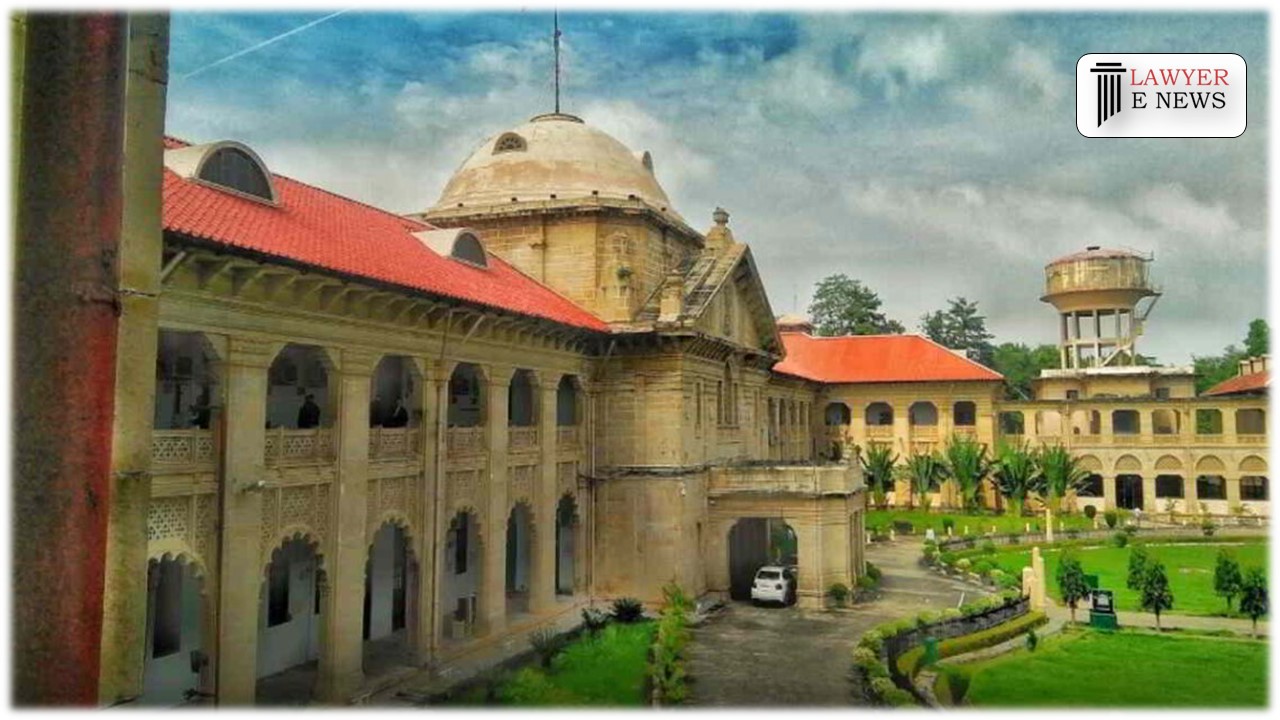-
by Admin
15 February 2026 5:35 AM



Allahabad, May 2024 - In a landmark judgment, the High Court of Judicature at Allahabad has acquitted Dr. J.N. Mishra, who was convicted by a lower court for the murder of his son-in-law, Sudhanshu. The division bench, comprising Hon’ble Justice Rahul Chaturvedi and Hon’ble Justice Ms. Nand Prabha Shukla, overturned the conviction on grounds of reasonable apprehension of death, acknowledging the right of private defence.
The High Court of Judicature at Allahabad, in Criminal Appeal No. 2531 of 2013, delivered a significant judgment on May 22, 2024. Dr. J.N. Mishra, the appellant, was previously convicted under Section 302 of the Indian Penal Code (IPC) and Section 30 of the Arms Act for the alleged murder of his son-in-law, Sudhanshu. The case revolved around whether Dr. Mishra acted in self-defence when his shadow-gunner shot Sudhanshu during a heated altercation.
Background: The incident in question occurred on March 2, 2010, during a panchayat meeting intended to resolve ongoing familial disputes between Dr. Mishra and his son-in-law. Sudhanshu allegedly pointed a firearm at Dr. Mishra, prompting Dr. Mishra’s shadow-gunner to shoot in defence. Following the altercation, Dr. Mishra was arrested and convicted by the Additional Sessions Judge, Court No. 2, Shahjahanpur, on May 7, 2013, and sentenced to life imprisonment.
Delayed FIR: The High Court noted the delay of five and a half hours in lodging the FIR, despite the proximity of the police station. The informant’s explanation for the delay was deemed unnatural and against normal human behavior, raising doubts about the credibility of the prosecution's case.
Right of Private Defence: The court scrutinized whether Dr. Mishra and his shadow-gunner exceeded the limits of private defence. The testimonies and circumstances were evaluated, particularly the immediate threat perception experienced by Dr. Mishra.
Examination of Evidence: The court found significant issues with the investigation, including the recovery of a mutilated bullet and discrepancies in the testimonies of key witnesses. It was noted that the deceased was carrying a firearm, which justified Dr. Mishra's apprehension of imminent danger.
Court Observations and Analysis: The bench cited several precedents from the Supreme Court, emphasizing the legal principles surrounding the right of private defence. It was highlighted that the use of force in self-defence must be proportionate to the threat perceived. The court referred to landmark cases such as Darshan Singh vs. State of Punjab and James Martin vs. State of Kerala, underscoring that a person facing a threat cannot be expected to measure their response with precise exactitude in a moment of peril.
Conclusion: The judgment acquitted Dr. Mishra, setting aside the lower court’s decision. The High Court acknowledged that the actions of Dr. Mishra’s shadow-gunner were proportionate and justified under the right of private defence. Dr. Mishra was released, and his bail bond was discharged.
Date of Decision: May 22, 2024
Dr. J.N. Mishra vs. State of U.P.
